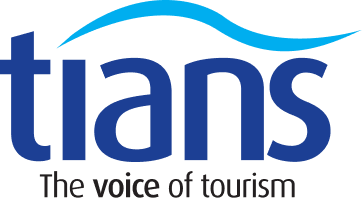Amending the Taxi Licensing Process
February 23, 2023February 23, 2023
Andrea MacDonald, Acting Director, Compliance
HRM Planning and Development
PO Box 1749
Halifax, NS B3J 3A5
Dear Ms. MacDonald,
On behalf of Tourism Industry Association of Nova Scotia (TIANS) and the Nova Scotia Tourism Human Resource Council (NSTHRC) we are following up on our earlier communication expressing our concerns around the recent decision by the Halifax Regional Municipality to significantly amend the taxi licensing process.
We have long recognized the important role the taxi industry plays in the visitor economy. HRM Taxi Drivers are often the first impression travelers have of our region. Over the past twenty years, TIANS/NSTHRC have been working with the taxi industry across the country, through Tourism HR Canada to establish industry standards and a national credentialing system.
The recommendations made by the Transportation Standing Committee (TSC) to remove the existing testing process, as well as the National Certification requirement for Drivers, did not consider several factors, including the context of work that has taken place over 20 plus years, the importance of training and value of industry credentialling.
Furthermore, the TSC based their decisions on incorrect information in the HRM Staff Report. The report erroneously identified that TIANS was in support of this change, when in fact, we were not consulted nor informed of the proposal.
To provide some historical context, during the 1990’s TIANS/NSTHRC, in partnership with the Hotel Association of Nova Scotia, initiated the Hotel Standards Taxi Program which ensured a minimum standard of vehicle and Driver for guests at the major hotel properties in the city as a result of mounting service and safety complaints. These vehicles underwent more stringent inspections than typically required at the time and Drivers were required to complete their National Certification. The program was very successful in its early years and was a positive step towards enhancing the service experience for visitors and increasing the professionalism of the occupation.
Over the years, a more general application of standards ensued working with the taxi licensing division. In 2004, HRM Council amended the taxi bylaw to require all new Drivers receiving a taxi license to complete their emerit National Certification. Existing Drivers were grandfathered in and not required to complete the process. During this time, the Hotel Standards Committee was amalgamated into the HRM Taxi and Limousine Advisory which has since been integrated into the TSC, as part of a broader transportation commission. It should be noted that the National Standards for Taxi Drivers have been updated numerous times with input and involvement from Drivers across the country.
As well as working with the HRM Licensing Division, TIANS initiated and led a series of professional development programs for Taxi Drivers with a number of community partners. These have included working with the Halifax Stanfield International Airport to implement the requirement of National Certification (in order to obtain an airport license), providing targeted Tour Guide Training for Drivers servicing the Halifax Port Authority and numerous other professional development opportunities.
More than 2000 Drivers from across HRM have achieved their national certification since the inception of the program. Having an industry credential for an occupation, which has traditionally been perceived as low-skilled, has greatly influenced Driver and service standards. The Staff Report to TSC noted that no other jurisdictions in Canada currently requires this process. While not mandatory elsewhere, this requirement has long been viewed as a best practice and HRM has been touted as an example of innovation and quality in this regard. As a result of HRM’s leadership, Nova Scotia has the highest number of certified Drivers per capita in Canada.
Removing this bylaw on the premise that it will incite more Drivers to enter into the profession is misguided; it will simply lower the overall quality, service and professionalism in the industry at a time when there is growing concern around service standards.
In 2018, HRM made the decision to outsource license testing. We secured the RFP to streamline testing processes to an external system. Working with the Nova Scotia Community College and our national partner – Tourism HR Canada – the online exams are now managed in a ISO system for proctoring and consistency. Exam writings are held monthly at NSCC locations; over the past four years, 1480 tests have been administered for new Drivers. Regular reports and communication have been provided to the HRM Licensing Staff to share analysis and feedback around suggested further improvements. These have included the need for enhanced language training, cultural diversity training, and additional service training. The move to eliminate the current process for a home-grown model will set the sector back decades and should be reversed. The current failure rate on the national exam speaks to the need for more professional support, not less. Drivers who are unsuccessful are provided with additional tools and assistance to get them through the process resulting in a high success rate for those challenging a second time. When they complete the process, and are awarded their designation, they have achieved a national credential established by the Canadian Taxi Industry.
The decision by HRM Council to eliminate all elements of the current process is a serious policy issue. Lowering the overall standard of entry into the system will not improve the profession, nor enhance the safety and quality of experience for residents and visitors alike.
In the absence of any fulsome consideration for a replacement plan or framework we are urging Council to reconsider these changes to the current process. We appreciate your consideration of this important issue.
Sincerely,
Lisa Dahr, Director
Industry Relations & Professional Development
cc: HRM Councillors
HRM Transportation Standing Committee
TIANS Board of Directors
NS Tourism Human Resource Council





